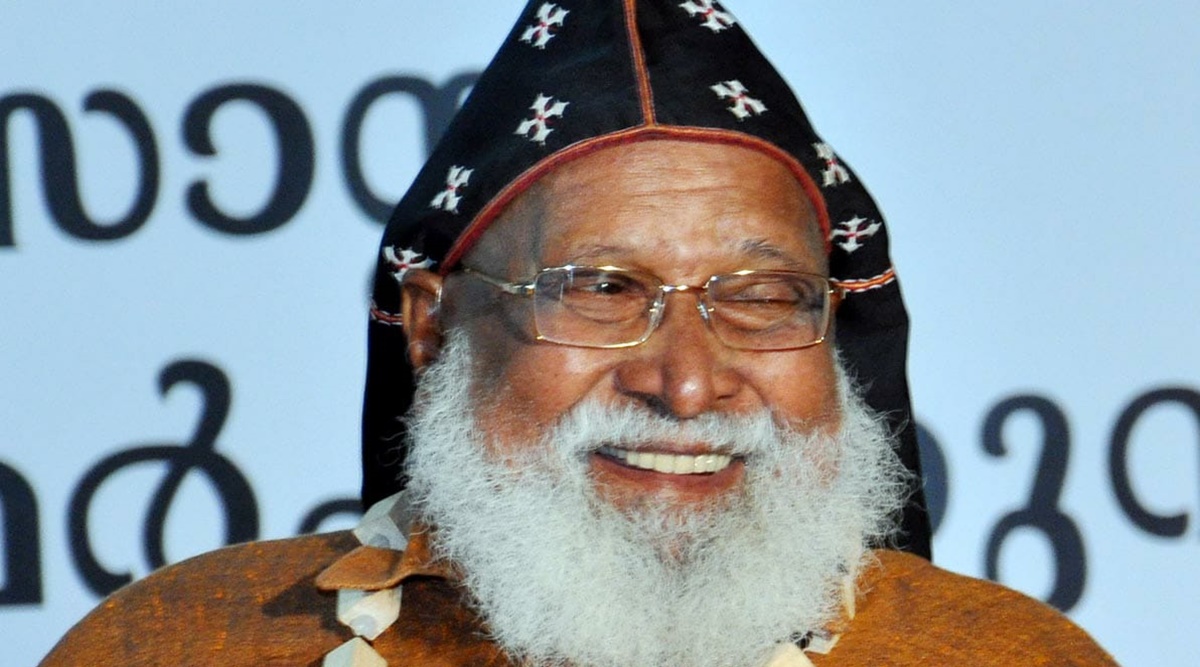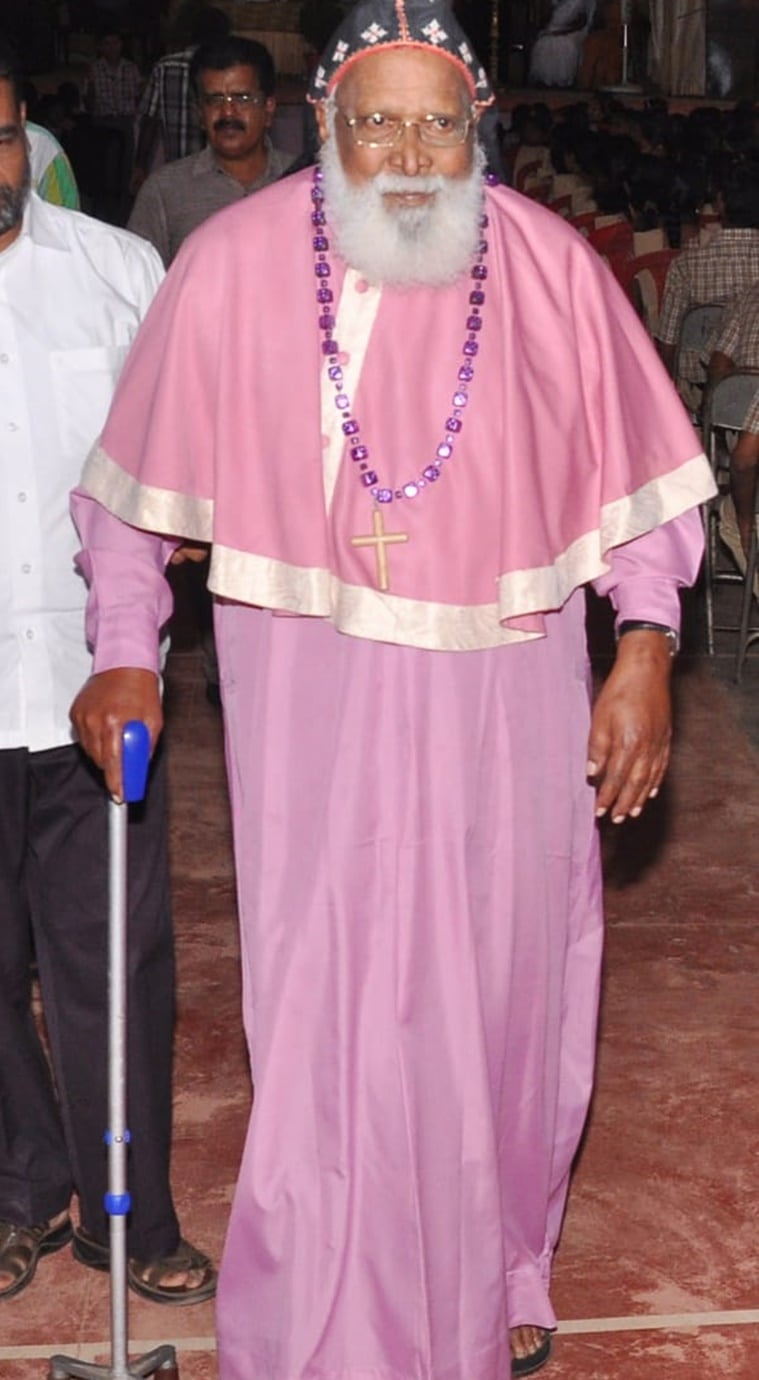 The longest-serving bishop in India, Chrysostom was the patriarch of the Malankara Mar Thoma Syrian Church, a community which is believed to have been converted by St Thomas (or Mar Thoma in Malayalam), one of the 12 apostles of Jesus Christ.
The longest-serving bishop in India, Chrysostom was the patriarch of the Malankara Mar Thoma Syrian Church, a community which is believed to have been converted by St Thomas (or Mar Thoma in Malayalam), one of the 12 apostles of Jesus Christ. It spoke volumes of the popularity and authority of Chrysostom that he could publicly poke fun at a serving chief minister minutes after the latter presented him with an award. At a church-organised function in Pathanamthitta in May 2014, a time when Kerala Chief Minister Oommen Chandy was weathering scandals both inside and outside the party, Chrysostom looked at him and said, “There was a time when a Puthuppally-born boy would issue orders as a student leader and everyone heeded to him. He could make the state tremble in fear. But today, I’m hearing that the state is making him tremble in fear.” Chandy and the rest of the audience burst out in laughter.
In the early hours of Wednesday, Philipose Mar Chrysostom, who regaled audiences with his uncanny knack for wit and humour, died at a private hospital in Pathanamthitta at the age of 103.
The longest-serving bishop in India, Chrysostom was the patriarch of the Malankara Mar Thoma Syrian Church, a community which is believed to have been converted by St Thomas (or Mar Thoma in Malayalam), one of the 12 apostles of Jesus Christ. Though the Church itself ranks as only the sixth-largest Christian community in the state as per the 2011 Census, the kind of acceptance and adoration that Chrysostom commanded was perhaps not enjoyed by any Christian priest in the state.
And that’s primarily attributed to Chrysostom’s ability to transcend religious and political disparities, to reach out to one another using the language of love and humanity. Rather than staying within the confines of a strict theologian, he believed in conversing with whomever he could find, irrespective of the field or sector they worked in. And so, there are reams of transcripts and hundreds of hours of footage of Chrysostom’s conversations with personalities of different hues, from politics to cinema, literature to social work and sports to spirituality. On the centenary of his birth, acclaimed film director Blessy produced a documentary on the life and ideals of Chrysostom that gained entry into the Guinness Book of World Records in the category of ‘longest documentary’ ever, running over 48 hours.

Chrysostom was born as Philip Oommen in 1917 into a family near Thiruvalla which has produced many priests. Following in the footsteps of his father, who was the vicar of a local Mar Thoma church, he completed his graduate studies in Kerala, going on to study theology in Bengaluru where he began missionary activities in 1940.
Even before India got Independence, Oommen was ordained as a deacon with the Bengaluru parish. And in 1953, he was given the episcopal title ‘Philipose Mar Chrysostom’, the one with the golden tongue, a description he conformed to till his last breath.
He remained a bishop for 67 years and 11 months, the longest-ever within any church in the country. He was installed as Metropolitan in 1999 and retired as Metropolitan Emeritus in 2007. He was awarded the Padma Bhushan, the country’s third-highest civilian honour, in 2018 for his outstanding contribution to society and communal harmony.
The remarkable aspect about Chrysostom is that even as the world’s greatest honours came looking for him, he owed his achievements to the most basic people whose work and livelihoods shaped his life. Often, in interviews and speeches, he has credited his Bishophood to an unlikely coconut plucker named Shanku. When people sat up thinking how that was possible, he would explain, “When I was studying, my family’s sole source of income was through coconuts in the field. Only if Shanku came and plucked coconuts, could the money be used to pay the college fees. If he hadn’t come, studies would get disrupted and I wouldn’t have become a priest. Without becoming a priest, one cannot become a bishop.”
Chrysostom has also rallied against social evils like addiction to alcohol and drugs, calling it one of the most critical problems in Kerala. When Chandy introduced prohibition during his stint in power, the Christian patriarch lauded him for his courage to do it, even though the policy was reversed to a large extent after the Left parties came to power. He has also been critical of the commercialisation of the Church amid allegations of its involvement in shady land deals. When the public agitation against building an airport in Aranmula by destroying acres of paddy fields reached its zenith, Chrysostom too raised his hand and said, “Nobody should fly over us by destroying our paddy fields and denying water to us. I don’t like it.”
But above all, it’s the good-natured, and sometimes sharp humour in his words that endeared him to masses going beyond his faith and placed him altogether on a different pedestal. In the local media, he’s often described as ‘chirippikkunna thirumeni’ (the priest who makes us smile) or ‘chiriyude thamburan’ (The Lord of smile). His humour was special because it was often at the cost of himself, his faith and even God. In a society where poking fun at God can elicit disastrous consequences, Chrysostom proved he could do it amicably and for good reason. The people knew that he was only making a point.
“I tell jokes mainly to cement some of life’s most fundamental principles inside our people’s minds. When they remember a joke, they may recall the principle I talked about,” he said in an interview.
- The Indian Express website has been rated GREEN for its credibility and trustworthiness by Newsguard, a global service that rates news sources for their journalistic standards.

